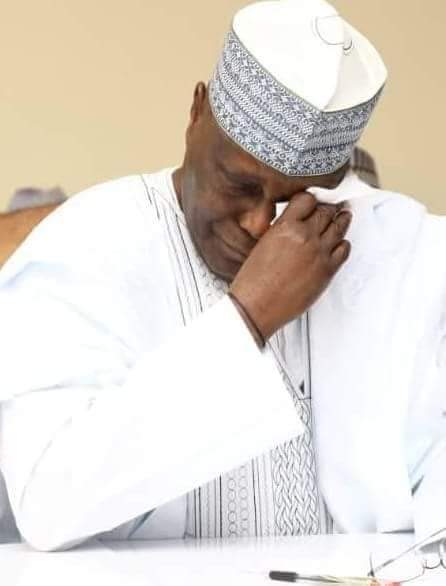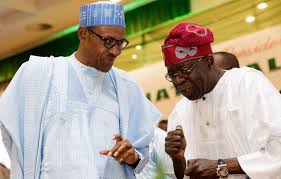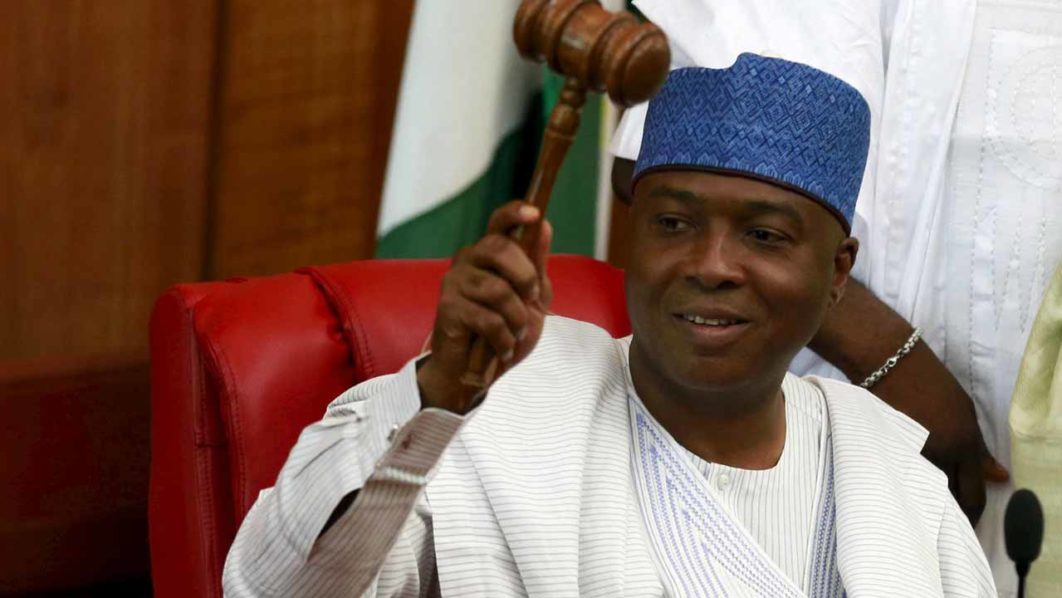By Omijuyigbe Dele
Alhaji Atiku Abubakar’s cry may be political but it appears real and deeper than we think. It carries an implicit message which we can grasp only when we agree that the cry isn’t faux. Atiku cried for what many of us are blind to. He knows what we don’t know and has seen what we haven’t seen. He has been vice-president and has partaken in the bad and the ugly in government. He has been part of the perennial concoctions, lies and manipulations of national administration. He knows the extent of damage which such negatives have done to Nigeria and still do. He has observed that each government fashions its own style of lies, leaving helpless Nigerians with the same nasty experience of perpetual expectations from government. So he cried. Kole Omotoso wrote, “If people knew half of what their political leaders do routinely that is criminal, they would never listen to another promise of better tomorrow”.
Certainly, Atiku has been part of few truths in government too, but truths wouldn’t make him cry! He cried because of Nigerians’ ignorance about the peculiarity of governance in their country and the untruthful nature of many of their political leaders. He told us indirectly with his tears that he had seen the light and would straighten all crooked paths if given the opportunity to serve as president. We need to ask him to make open confessions to us if there are some to make. Only the truth can save Nigeria. President Goodluck Jonathan embarked on two key truths about Nigeria but lost them to his own selfishness. The timing of the truths made them selfish. One, he convened a desirable national conference at a time he was seeking reelection. Two, he suggested a single term of six years for Nigeria’s president when he himself was desirous of a second term of another four years. Those were two fantastic ideas which lost their steam to Jonathan’s egotism and waning popularity at their time of introduction. They were conceived from his government’s desperation for further relevance.
Keeping two terms for president and governors is a waste of resources. Three years are utilized for state functions in the first four years while the fourth is expended on campaigns when integrity takes flight. Mohammadu Buhari would have been a good one-term president. He would have succeeded in laying the foundation for Nigeria’s sanity with his earlier corruption fight now reduced to mere verbiage, having been sacrificed on the altar of reelection purposes.
GEJ apparently delayed the national conference till 2014 to make its report implementation a campaign issue for his second term bid too. That made the project selfish, and Nigerian governments have a way of discountenancing any project which they didn’t initiate, especially when it is a product of selfish political necessity. Otherwise, the restructuring discussed at the National Conference seems germane to Nigeria’s cohesion. However, Nigeria cannot run away from restructuring forever. The clamour for it has persisted since 2014, which could be a reason Atiku cried. Atiku has been talking loudly about restructuring and he seems sincere. People may love GEJ or hate him, but the two suggestions he made about governance in Nigeria are a sure panacea for the constant threat to national unity. Pundits love to quote other democracies which allow two terms for their elected officials in office whereas we all know that Africa is different and peculiar. Self-centredness is the driving force here.
A state governor suddenly wakes up at the twilight of his administration to pretentiously do the needful for his hitherto abandoned people. He remembers to employ thousands of the people at the eleventh hour of his eighth year to create sufficient problems for his successor. Ayodele Fayose is one of such. He recently employed some people he hadn’t recognized since his administration began. Kayode Fayemi will inherit the liabilities. Fayemi, too, did the same thing when he was leaving office after losing the 2014 election. He doled out jobs in the civil service to job seekers and party stalwarts. Fayose inherited them as liabilities. It still beats me how only two persons could be exchanging the governor’s seat like akara and eko in a state populated by nearly 2.4million sound people! When that starts happening in my state, I will ditch the chalk and join a political party to contest. That Fayose built market stalls in Oja Oba, Ado-Ekiti and personally supervised their allocation to market women last week is commendable though. It is the best way to ensure that the original owners of the earlier demolished shops are not denied access to the stalls by powerful politicians.
Nigerians desire much but get a little. That could be another reason for Atiku’s cry. A remorse for missed opportunity while he served, one could say! Many Nigerian politicians have cried before him and his may not be a dumped, anachronistic ploy to win sympathy but a measure to purge himself of past wrongs. The concern is that politicians are not like Jesus who wept, raised Lazarus from the dead and comforted all mourners. When Nigerian politicians weep, they add to people’s sorrow.









